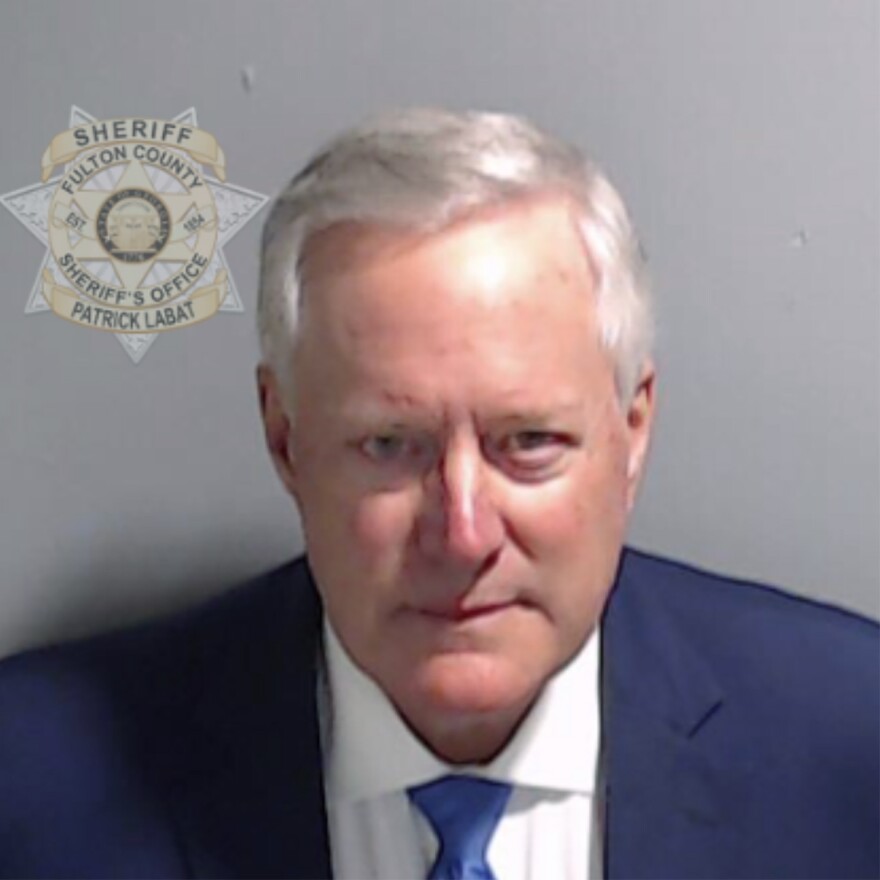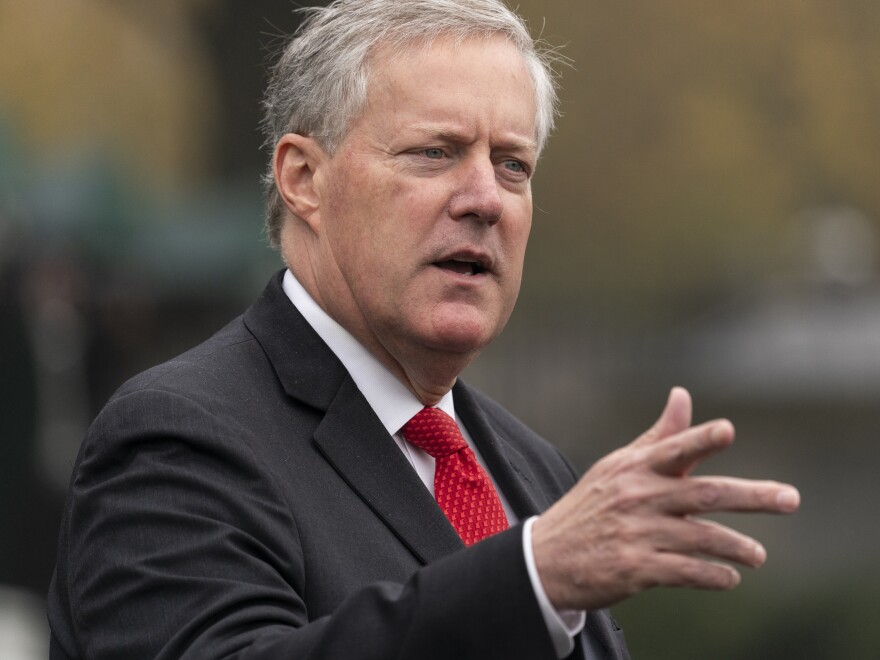A federal judge has denied former Trump White House Chief of Staff Mark Meadows' request to move his Georgia election interference charges under federal jurisdiction.
The order Friday is the latest development in an increasingly complicated effort to prosecute 19 people, including former President Donald Trump, alleged to have engaged in a sweeping conspiracy to overturn Georgia's 2020 presidential election results.
Meadows argued in court filings and at an Aug. 28 hearing that he met a three-pronged threshold to move his charges out of Fulton County, Ga., Superior Court and under federal jurisdiction because he was an officer of the United States, the felony counts he faces stemmed from actions done under that office, and that he raised a "colorable federal defense."
Judge Steve Jones, an Obama appointee, disagreed.
In a 49-page order, Jones found that only one of Meadows' alleged actions in connection with a larger scheme to undermine Georgia's already-certified election results was within his official duties and therefore protected under federal law.
"The Court finds that the evidence presented does not show that most of the remaining overt acts were related to the scope of Meadows' role as Chief of Staff," he wrote, adding that Meadows "cannot have acted in his role as a federal officer with respect to any efforts to influence, interfere with, disrupt, oversee, or change state elections."

The former North Carolina congressman is accused of "solicitation of violation of oath by public officer" and charged with violating Georgia's expansive racketeering law for his organization and participation in a call where Trump pressured Georgia's Republican secretary of state to "find" votes and overturn the already-certified election results.
He took the stand during the hearing on the removal notice, offering extensive testimony about his role as chief of staff and disputing some of the underlying actions prosecutors allege were overt acts in furtherance of the larger conspiracy to subvert Trump's election defeat.
Fulton County District Attorney Fani Willis' office argued Meadows engaged in a number of activities that were political in nature and not protected by federal law, from crashing a Georgia Bureau of Investigation-led audit of absentee ballot envelopes to setting up a call with Trump and the then-chief elections investigator.
Jones, who acknowledged the unprecedented nature of the case and the little-used removal process, was unsparing in his assessment of Meadows' defense of his actions.
"When questioned about the scope of his authority, Meadows was unable to explain the limits of his authority, other than his inability to stump for the President or work on behalf of the campaign," Jones wrote. "The Court finds that Meadows did not adequately convey the outer limits of authority, and thus, the Court gives that testimony less weight."
Jones' decision to keep the case at the state level nevertheless adds a new layer of complication to the logistical challenges brought by attempting to try 19 different defendants with various legal strategies and levels of exposure.
The order is likely to be appealed, setting up a potentially months-long delay in resolution while Willis prepares for the potential of multiple trials that will include at least 150 estimated witnesses and each take an estimated least four months, not counting jury selection.
Fulton County Superior Court Judge Scott McAfee ruled Sept. 6 that two defendants who requested speedy trials, Kenneth Chesebro and Sidney Powell, would see their cases brought Oct. 23.
The decision against Meadows is a potential obstacle for other defendants who also have removal requests pending in federal court. At least four other defendants are also seeking to move their cases, including three Republican officials who argue their roles as presidential elector nominees — where they falsely claimed to be official electors for the state — give them federal protection. Trump's attorneys also filed a recent motion teasing the possibility of a removal request.
Friday also saw the release of the full report of a special grand jury that investigated the election interference efforts. That report recommended nearly 40 people face charges, though the final decision rested with the district attorney's office.
Meanwhile, the Fulton County judge is expected to issue scheduling orders for the remainder of the defendants in the coming week.
Copyright 2023 Georgia Public Broadcasting


